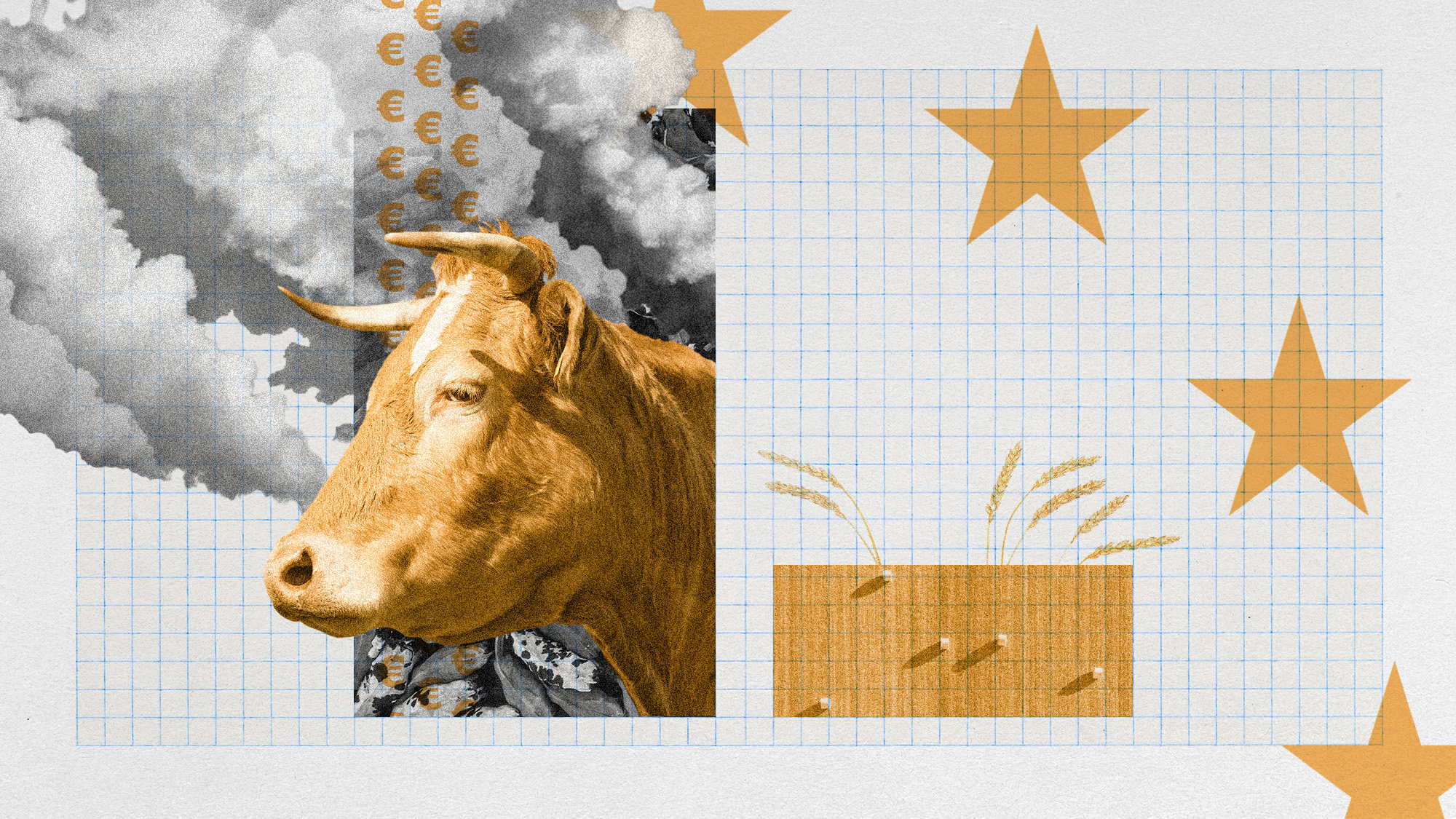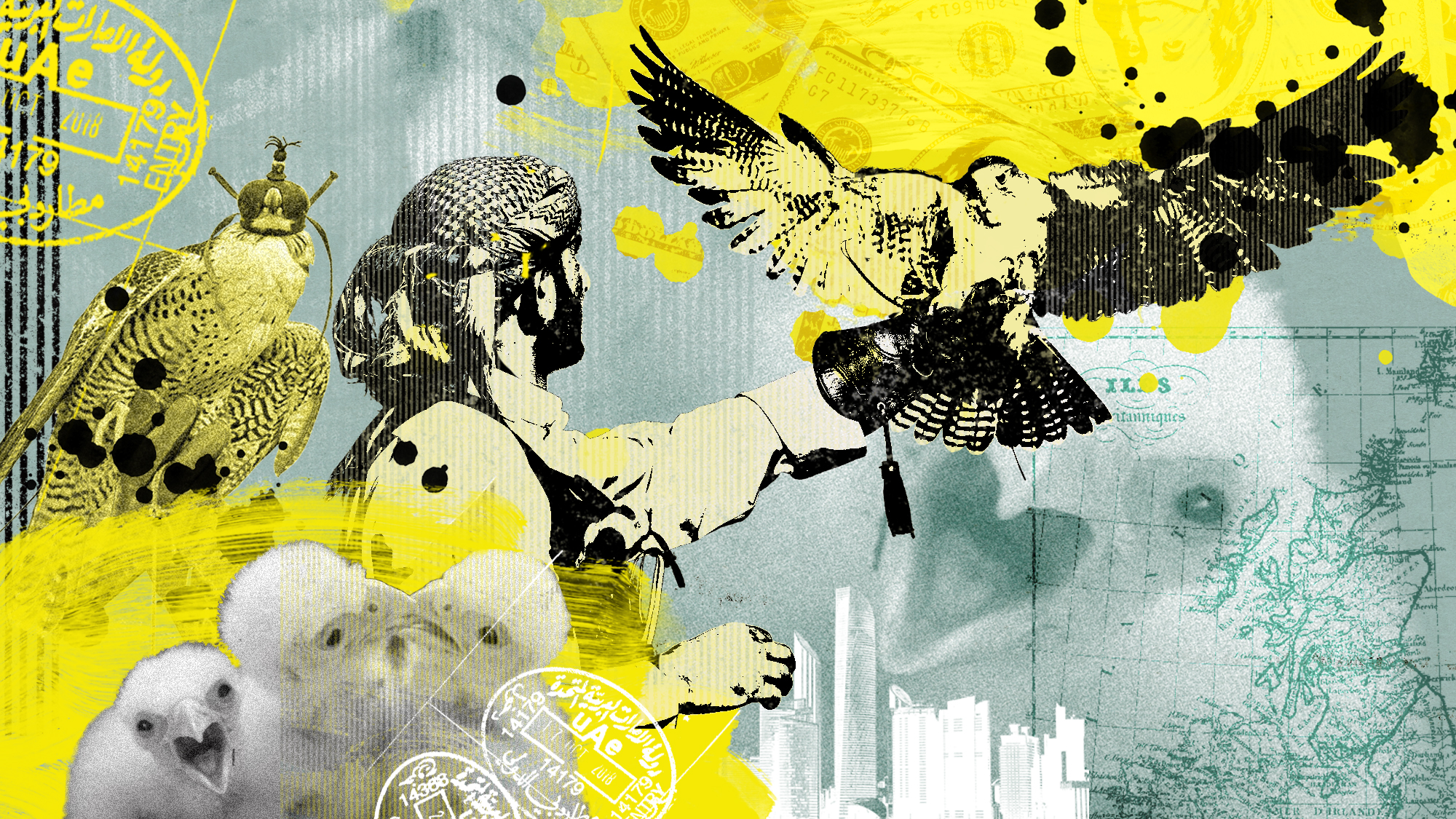How the EU undermines its climate goals with animal farming subsidies
Bloc's agricultural policy incentivises carbon-intensive animal farming over growing crops, despite aims to be carbon-neutral

A free daily email with the biggest news stories of the day – and the best features from TheWeek.com
You are now subscribed
Your newsletter sign-up was successful
The EU aims to make Europe the first climate-neutral continent by 2050 – but has been investing four times as much money into carbon-intensive livestock farming than growing plants, research has found.
More than 80% of subsidies given to farmers through the bloc's common agricultural policy (CAP) went to animal products in 2013, according to a study published last week in the journal Nature Food: 38% directly and 44% for animal feed. The "vast majority" of CAP subsidies are going towards products that are "driving us to the brink", said study co-author Paul Behrens, environmental change researcher at Leiden University.
Although the CAP has been reformed twice since 2013, another study published in 2022 still found that about half of EU subsidies went to animal food. The research shows that "most subsidies do not support an urgently needed transition towards healthy and sustainable diets", Florian Freund, agricultural economist at Braunschweig University and co-author of the 2022 study, told The Guardian.
The Week
Escape your echo chamber. Get the facts behind the news, plus analysis from multiple perspectives.

Sign up for The Week's Free Newsletters
From our morning news briefing to a weekly Good News Newsletter, get the best of The Week delivered directly to your inbox.
From our morning news briefing to a weekly Good News Newsletter, get the best of The Week delivered directly to your inbox.
What's the situation with carbon-intensive farming?
Greenhouse gas emissions from animal farming in the EU made up 17% of the bloc's total emissions in 2020. This does "more damage to the climate than all cars and vans put together", according to a Greenpeace analysis of UN Food and Agriculture Organisation data and other research.
"Animal agriculture is one of the leading causes of the accelerating death of wildlife around the world," said The Guardian's Europe environment correspondent Ajit Niranjan. Globally, it is responsible for 12%-20% of pollutants warming the planet.
Currently, the CAP subsidy scheme "pays more to farms that occupy more land", said Niranjan, making farming livestock more attractive than crops as animals take up more space.
This leads to "perverse outcomes for a food transition", said the study researchers, because the livestock is fed crops that could have fed people. "We're incentivising the worst-case scenario," said Behrens.
A free daily email with the biggest news stories of the day – and the best features from TheWeek.com
The estimates for how much of the CAP subsidies go on animal farming are "higher than was previously thought", because they now account for the subsidies that go on animal feed, said the researchers.
"For example, a French farmer growing wheat for pig or chicken feed will receive a subsidy for that wheat on top of the subsidy received by a livestock farmer in Denmark who imports that feed," they wrote. "On this basis, we show that CAP support roughly doubles for animal-based foods."
Will it affect the EU's climate-neutral pledge?
The EU aims to be climate-neutral by 2050, i.e. with net-zero greenhouse gas emissions.
But in 2020, Greenpeace declared that the scale of the problem of animal farming meant the EU would not reach the goals of the Paris climate agreement.
In the latest CAP reform in 2021, the bloc decided to set aside a quarter of direct payments for "eco-schemes", to incentivise environmentally friendly farming.
Last summer, the European Parliament voted to update its decade-old Industrial Emissions Directive law package, which was intended to regulate dirty emissions and covers industrial poultry and pig farming. But the vote was "effectively watering down" a previous proposal from the year before, which would have extended the directive to other intensive farming such as cattle, said charity Friends of the Earth.
The vote "missed an opportunity" to bring more industrial animal farms in line with the EU's environmental ambitions, and left a "significant portion" of animal farms unregulated. In a time of climate crisis, the decision amounted to "letting some of the main polluters off the hook".
In recent months, European governments have again "watered down several green policies in the face of furious farmer protests", said Niranjan.
As part of the current revamp of the CAP, 4% of farmland must remain unused to help offset lost crops, following Russia's invasion of Ukraine. But farmers have "long argued these measures will make the European agricultural sector less competitive," said the BBC.
Despite opposition from farmers and lobby groups, "these environmental improvements are sorely needed", said the study researchers.
This year, members of the European parliament voted to ban terms such as "climate neutral", "environmentally friendly" and "climate neutral" that were used without evidence, and introduced a total ban on using carbon-offsetting schemes to substantiate environmental claims.
Just this week, the EU's top rights court dismissed two cases aimed at forcing countries to meet obligations to reduce greenhouse gas emissions.
However, it did side with a group of Swiss women in another case, and condemned the country for violating human rights through inaction in the face of the climate crisis.
Harriet Marsden is a senior staff writer and podcast panellist for The Week, covering world news and writing the weekly Global Digest newsletter. Before joining the site in 2023, she was a freelance journalist for seven years, working for The Guardian, The Times and The Independent among others, and regularly appearing on radio shows. In 2021, she was awarded the “journalist-at-large” fellowship by the Local Trust charity, and spent a year travelling independently to some of England’s most deprived areas to write about community activism. She has a master’s in international journalism from City University, and has also worked in Bolivia, Colombia and Spain.
-
 The environmental cost of GLP-1s
The environmental cost of GLP-1sThe explainer Producing the drugs is a dirty process
-
 Greenland’s capital becomes ground zero for the country’s diplomatic straits
Greenland’s capital becomes ground zero for the country’s diplomatic straitsIN THE SPOTLIGHT A flurry of new consular activity in Nuuk shows how important Greenland has become to Europeans’ anxiety about American imperialism
-
 ‘This is something that happens all too often’
‘This is something that happens all too often’Instant Opinion Opinion, comment and editorials of the day
-
 The plan to wall off the ‘Doomsday’ glacier
The plan to wall off the ‘Doomsday’ glacierUnder the Radar Massive barrier could ‘slow the rate of ice loss’ from Thwaites Glacier, whose total collapse would have devastating consequences
-
 Can the UK take any more rain?
Can the UK take any more rain?Today’s Big Question An Atlantic jet stream is ‘stuck’ over British skies, leading to ‘biblical’ downpours and more than 40 consecutive days of rain in some areas
-
 As temperatures rise, US incomes fall
As temperatures rise, US incomes fallUnder the radar Elevated temperatures are capable of affecting the entire economy
-
 The world is entering an ‘era of water bankruptcy’
The world is entering an ‘era of water bankruptcy’The explainer Water might soon be more valuable than gold
-
 Climate change could lead to a reptile ‘sexpocalypse’
Climate change could lead to a reptile ‘sexpocalypse’Under the radar The gender gap has hit the animal kingdom
-
 Why scientists want to create self-fertilizing crops
Why scientists want to create self-fertilizing cropsUnder the radar Nutrients without the negatives
-
 The former largest iceberg is turning blue. It’s a bad sign.
The former largest iceberg is turning blue. It’s a bad sign.Under the radar It is quickly melting away
-
 Why the Middle East is obsessed with falcons
Why the Middle East is obsessed with falconsUnder the Radar Popularity of the birds of prey has been ‘soaring’ despite doubts over the legality of sourcing and concerns for animal welfare